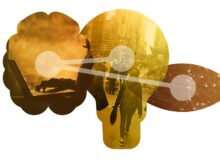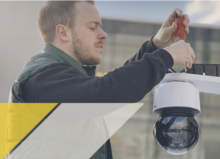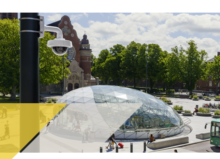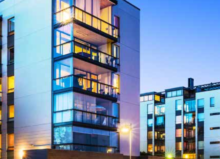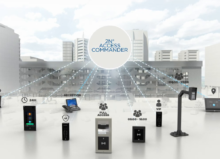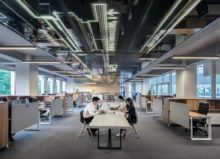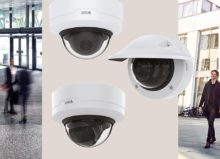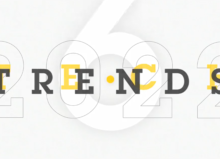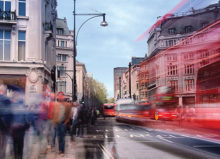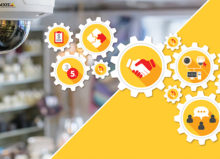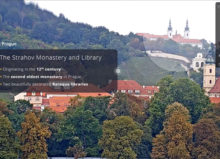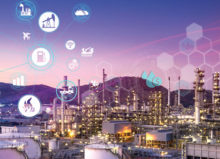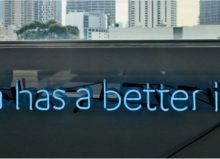Reflecting on predictions of the macro trends affecting the sector in 2020
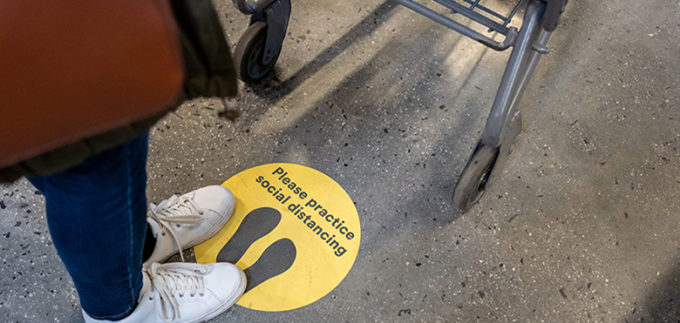
Niels Bohr, the Danish Nobel Laureate in Physics, famously said, “Prediction is very difficult, especially about the future!”
He was a clever man.
Back in January, I published a post which looked at the broader macro trends that I thought would affect the security sector in 2020. At that point, few would have predicted the level of disruption that the COVID-19 pandemic would cause across the globe, in all aspects of our professional and personal lives.
I thought it would be interesting to look again at those trends, to see how each might have been affected by the past few months. Some might have a heightened relevance, others perhaps less so, but all would have been impacted in some way.
1. Trust
The first trend is about trust, and indeed is one which I see as a common link between all other trends. Nothing has changed in our feelings over the past few months: it is clear that trust remains as a central principle in the relationship between citizens, business and government, and it could be argued that it is more critical than ever.
In business, every organization has had to react swiftly to the impact of the pandemic on operations. Every decision has the potential to impact the trust between a business and its stakeholders – employees, customers, suppliers and local communities. It’s perhaps been a time more than any other when the true values that sit at the core of a business are exposed, for good and bad. In this article, Axis’ CEO Ray Mauritsson and CTO Johan Paulsson talks about how ethics and trust affect different aspects of business, technology and the company.
We are still in the midst of managing the pandemic, but the next few months will demonstrate whether the bond of trust between citizens and public and private institutions has been weakened or strengthened. But it’s no less important.
2. The need to feel secure
If there was one trend that I’m confident is still relevant, it’s the fundamental human need to feel secure. Clearly, over the past few months, people’s sense of safety and security has been disrupted: we’ve all been feeling, at times, concerned about the health of our friends and families, and the significant changes and restrictions to aspects of everyday life have been disorientating. This will continue as some aspects of life take a long time to return to ‘normal’, while others will be changed forever.
When used in line with national and international regulations, video surveillance has for a long time played a role in keeping people safe and secure without impinging on their privacy. This remains the same, and in fact video, audio and access control technologies can help in ensuring adherence to public safety guidelines. Whether managing the number of people and their proximity in public spaces, shops and offices; reducing the contact points in building access, or communicating essential public health information, technology can help.
3. Sustainability and the Environment
The broader impacts of the pandemic – particularly the reduction in international and domestic travel – have resulted in environmental benefits across the globe. Hopefully these benefits can be a springboard to more focus on environmental responsibility and sustainable operations as the world of business and commerce recovers some of which, I’m sure, will be driven by consumer behavior.
More broadly, the approach a business takes to sustainability in environmental responsibility has always been part of their overall approach to business ethics. Again, the light has been shone on the fundamental values of every organization as they managed their way through the pandemic.
Those organizations which have traditionally demonstrated a strong ethical approach to business – and which has been demonstrated through their reaction to the pandemic – will emerge stronger and with deeper relationships. “Doing the right thing” has never been more important.
4. Urbanization
Another key trend is urbanization. It’s going to be interesting to see how the pandemic affects the trend that we’ve seen for many years of more people living in cities. Commentators in certain markets have already started speculating that many people will move away from urban centres given both the perceived health risks of living in such crowded communities, and the realization that working more flexibly is a real possibility.
However, it can also be argued that the opportunity to work remotely – only visiting an office once or twice a week, if at all – is a luxury that a minority of working people can afford. Ultimately, it is unlikely that we’ll see a mass exodus of people from cities, and the requirement for technology to play a role in keeping cities safe, secure and efficient will remain.
5. The impact of global politics
There’s certainly no evidence that the pandemic has lessened the implications of global politics on business. The perhaps natural desire of governments to focus on the health and safety of their own citizens, added to the disruption of global supply chains, may lead to longer-term protectionism around resources, capabilities and people. However, if nations are to ‘Build Back Better’ following the pandemic, openness, honesty and transparency are essential if we are to fully learn the lessons that will make society more resilient.
I am sure further trends will emerge over the coming months that will impact life at work and at home across the globe. As measures are put in place to reduce the risk of the pandemic and future viruses returning, we also have the opportunity to learn positive lessons and make fundamental changes to improve the way we live our lives. We must look to take that opportunity.
Source: https://www.axis.com/blog/secure-insights/reflection-predictions-trends/

